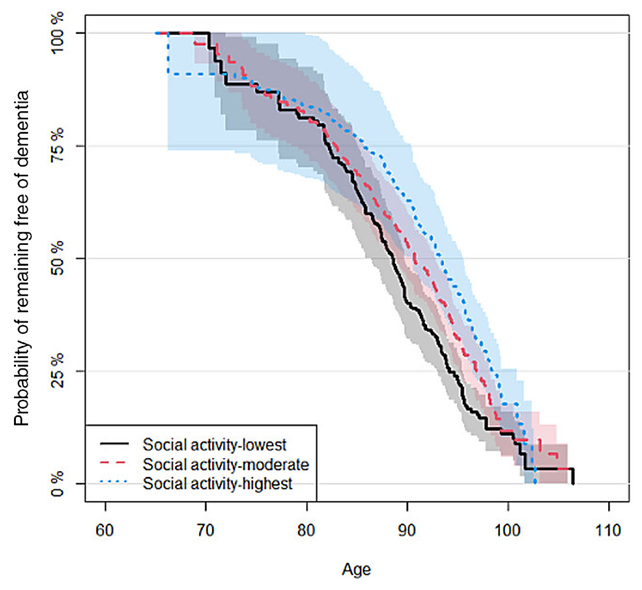Here's another way of potentially postponing the onset of dementia and reducing dementia risk: cultivating an active social life. Meeting up with other people regularly was associated with delaying dementia by up to five years, a new study found.
The team behind the study, from Rush University in the US, followed 1,923 older adults over a period of nearly seven years on average, cross-referencing dementia cases, and when they were diagnosed, against socializing habits.
What the researchers found was a roughly five-year gap in average dementia diagnosis age between the most and the least socially active participants. It could be a cheap, easy, accessible way to protect against cognitive decline.

"This study is a follow up on previous papers from our group showing that social activity is related to less cognitive decline in older adults," says epidemiologist Bryan James, from Rush University.
"In this study, we show that social activity is associated with an increased risk of developing dementia and mild cognitive impairment."
The study asked participants about how often they engaged in various types of social activity. That list included going out for meals, attending sporting events, playing bingo, taking day or overnight trips, visiting relatives and friends, attending religious services, and doing volunteer work.
In addition to logging cases of dementia, the research also measured cognitive skills over time through 21 different tests. Certain key factors that may have influenced the results, including age and physical health, were accounted for in the analysis.
As well as the dementia delay, the team found that the most socially active individuals were 38 percent less likely to develop dementia and 21 percent less likely to develop mild cognitive impairment over the study period, compared to the least socially active.
"Social activity challenges older adults to participate in complex interpersonal exchanges, which could promote or maintain efficient neural networks in a case of 'use it or lose it'," says James.
The data isn't enough to show direct cause and effect. It's probable that other factors are involved too: for instance, those who are visiting friends and family more often are likely to be more physically active too.
However, there is a strong link here – and it fits with what we already know about being isolated socially and having an increased risk of dementia. Even having pets around has been shown to make a difference.
Putting lifestyle changes and dementia risk in simple, bite-sized terms – such as a five-year dementia delay for the socially active – can help increase awareness of these conditions and how they can be guarded against, according to the researchers.
"Our estimates of the extent to which social activity relates to dementia onset age provides a unique lens for understanding the public health significance of social activity," write the researchers in their published paper.
"Considering potential negative impacts of the COVID-19 pandemic on social engagement, it is now important to develop and test initiatives targeted at social activity among older adults."
The research has been published in Alzheimer's & Dementia: The Journal of the Alzheimer's Association.
